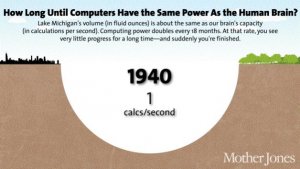Fra den filosofiske forskningsfronten på Blindern:
Abstract:
Josh Armstrong: “Towards a Dynamic Metasemantics”
Abstract: Since the 1980s, many theorists have emphasized the importance of a dynamic perspective on natural language semantics and pragmatics. In this talk, I will attempt to motivate and develop an analogous dynamic perspective on metasemantics or the study of the social and environmental facts in virtue of which utterances come to have the representational properties that they do. In the first half of the talk, I argue for a dynamic approach to metasemantics through a consideration of facts concerning a specific kind of language innovation and language change. In the second half of the talk, I develop a particular kind of constraint based approach to metasemantics and show how it can illuminate the relevant facts concerning language innovation and language change.
Samia Hesni: “A Good Girl is Tough and Boys Don’t Cry: Normative Generics and Social Kind Terms”
Abstract: Generic statements are commonly expressed using the bare plural – “tigers are striped” – or the indefinite singular– “a tiger is striped.” Notoriously, some generic statements can be expressed using the bare plural locution, but not using the indefinite singular. It is well-established that bare plural generics and indefinite singular generics pattern differently. I explore this phenomenon as it applies to normative generic statements. Consider the sentence pair:
(1) Boys don’t cry.
(2) #A boy doesn’t cry.
Sentence (1) is felicitous –it expresses a general normative statement about boys crying – while (2) isn’t. I propose that we should look to a metalinguistic theory of generics to understand the felicity of normative indefinite singular generics. That is, a normative indefinite singular generic is a proposal about what to include in the extension of the generic term (e.g. woman, man, or real boy).
Robin Beth Jeshion: “Pride and Prejudiced: On the Creation and Appropriation of Slurs”
Abstract: Slurring terms are pejorative expressions that target individuals on the basis of race, ethnicity, religion, sexual orientation, nationality, socioeconomic status, occupation, and various other socially important properties. They are tools of subordination and their use a threat to human dignity. Notoriously, slurs are often appropriated, resulting in uses that neutralize their sting. How is this possible? What are the mechanisms that make appropriation possible? And what are the mechanisms by which slurs are introduced into the language? In this talk, I will advance an expressivist theory of slurring terms and explicate how understanding certain very general mechanisms of semantic change can help underwrite this theory.
Peter Pagin: “Meaning change in Switcher Semantics”
Abstract:
The characteristic trait of Switcher Semantics is that it allows for meaning change in the interpretation of embedded expressions. The semantic function that applies to an immediate constituent of an expression e may be different from the function that applies to e itself. Frege made use of such switches for indirect discourse and for quotation. What is new is that the idea is systematically worked out (Glüer and Pagin, Pagin and Westerståhl), with a generalized concept of compositionality, and applied to new phenomena: proper names in modal contexts, general terms in modal contexts, quotation, and belief sentences.
A possible new application is that of ad hoc interpretation. By this I here mean something that occurs in [free] indirect discourse, when an expression is used, not with the speaker's standard meaning, but with a distinct meaning it has in the idiolect of the attributee.
Robyn Carston: “Ad Hoc Concepts and the Roots of Polysemy”
Abstract: Ad hoc concepts and new word coinages arise in the process of linguistic communication, via pragmatic inferences, which are driven by the goal of finding an optimally relevant interpretation and constrained by linguistically decoded meaning. Many of these are evanescent, but some spread through a population of language users and stabilise, becoming cases of (cross-categorial) polysemy. In this talk, I discuss the processes involved.
Eric Swanson: “Channels for Common Ground”
Abstract: Language influences the likelihood that our discourses wind up one way rather than another. While canonical philosophy of language offers a few prominent examples of such influence, they have been discussed piecemeal, without any attempts to develop an illuminating general approach. And there have been no extensions to socially and politically consequential speech, where there is special reason to attend carefully to subtle influences on the evolution of discourse. In §1 I characterize this sort of influence abstractly and contrast it with other phenomena, using some fairly simple examples for illustration. §2 turns to richer examples: the marking of racial and gender categories, the ways in which the discourse of taste and virtue was used to whitewash the brutality of enslavement, and talk about law and order, terrorism and insurgency, and accountability in education. I close, in §3, by arguing that language’s effects on the evolution of discourse affect the paths to and probabilities of different sorts of consensus.
Rachel Sterken: “Transformative Communicative Disruptions”
One goal of what Haslanger calls ameliorative projects is to get others to go along with a revision (an improvement) of a concept. Generally, the goal of such a project is the following: to get members of the speech community to change from using expression W to express a concept, C, to using W to express C*. This talk focuses on the transition period – when the ameliorator uses W to express C*, but others in the community do not. In this talk I explore the idea that those engaged in amelioration prior to success often engage in uncooperative, insincere or unsuccessful communication when they use W in the new way. This might be an element not just of Haslanger-style ameliorative projects, but of meaning transitions more generally. I argue that these aspects of the ameliorator’s speech are often justified and useful because they lead to what I call “transformative communicative disruptions".
ConceptLab - Department of Philosophy, Classics, History of Art and Ideas



